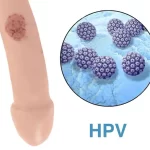What Triggers Heavy Periods?
What triggers heavy periods is important question, however, many women experience heavy menstrual bleeding, and in most cases, there isn’t a specific underlying cause. Again, sometimes heavy periods can be linked to medical conditions such as endometriosis, fibroids, or other health issues.
The good news is that there are several ways to manage and reduce heavy bleeding. Treatment options include:
- Medications that help slow down bleeding and make periods lighter.
- Hormonal intrauterine devices (IUDs), also known as hormonal coils, which release hormones to reduce bleeding.
- Surgical procedures, which may be recommended in more severe cases when other treatments don’t work.
What is Considered a Heavy Period?
On this article regarding “What Triggers Heavy Periods”, many women describe their periods as “heavy,” but it can be hard to tell whether your flow is actually heavier than average. Some women with normal bleeding may feel their periods are heavy, while others with significant blood loss might think their periods are normal.
A typical period lasts four to five days, and most of the blood loss happens in the first three days. If you find yourself soaking through a pad or tampon every hour, passing large blood clots, or experiencing periods that last longer than seven days, you may have menorrhagia (heavy menstrual bleeding).
If you’re concerned about your periods, it’s always a good idea to talk to a doctor. They can help determine if your bleeding is within a normal range and suggest the best treatment options for you.
For more information, check out these helpful resources:
🔹 Mayo Clinic – Heavy Menstrual Bleeding
🔹 NHS – Heavy Periods
🔹 Planned Parenthood – Understanding Your Period
How Much Blood Loss is Considered Normal or Heavy During a Period?
Measuring blood loss during a period isn’t easy, but medical experts have set some general guidelines:
🔹 Normal Period: Women typically lose 30 to 40 ml of blood per menstrual cycle, which is about six to eight teaspoons. A period usually lasts five days on average, but some women may bleed for up to eight days and still be within the normal range.
🔹 Heavy Period (Menorrhagia): If blood loss reaches 80 ml or more (about half a teacup or more), it is considered a heavy period. However, since it’s difficult to measure blood loss precisely, doctors rely on symptoms instead.
How to Tell If You’re Losing Too Much Blood
You may have heavy menstrual bleeding (menorrhagia) if you experience one or more of the following:
✅ Soaking through pads or tampons every hour for several consecutive hours.
✅ Bleeding that leaks onto clothes or bedding, even with regular pad/tampon changes.
✅ Needing to wear double protection (both a tampon and a pad).
✅ Passing large blood clots, particularly those larger than a 10 Naira coin (or a quarter in the U.S.).
✅ Feeling too exhausted or weak due to heavy bleeding (a sign of anemia).
✅ Limiting daily activities (such as work, school, or social outings) because of period flow.
If your period interferes with your daily life and happens every month, it may be time to see a doctor.
Why Do Some Women Experience Heavy Periods?
In about half of the cases, doctors cannot find a specific cause for heavy periods. This is called dysfunctional uterine bleeding (DUB) or idiopathic menorrhagia. In these cases:
- The uterus (womb) and ovaries appear normal.
- There is no hormonal imbalance causing the heavy flow.
- Ovulation (the release of an egg each month) is often regular.
When Are Heavy Periods More Common?
🔹 Teenagers & Young Adults:
In the first few years after a girl starts her period, heavy bleeding is common. This is because the body is still adjusting to regular ovulation. Most of the time, periods become lighter over time.
🔹 Approaching Menopause:
Heavy, irregular periods can also happen in the years leading up to menopause. This is because hormone levels fluctuate, causing unpredictable and sometimes very heavy bleeding.
🔹 When to Worry About Pain:
If severe pain is present along with heavy bleeding, it could be a sign of endometriosis (a condition where tissue similar to the uterus lining grows outside the womb). If pain is persistent, it’s important to get it checked by a doctor.
Next Steps
If you’re experiencing heavy periods that disrupt your life, it’s a good idea to speak with a doctor. There are several treatment options, including:
🔹 Medications to reduce bleeding.
🔹 Hormonal treatments, like the hormonal coil (IUD).
🔹 Surgical options for more severe cases.
For more information, check out these helpful resources:
📌 Mayo Clinic – Menorrhagia (Heavy Periods)
📌 NHS – Heavy Menstrual Bleeding
📌 Planned Parenthood – Understanding Your Period
Other causes
These are less common. They include the following:
- Fibroids. These are non-cancerous (benign) growths in the muscle of the womb. They sometimes cause no problems but often cause symptoms such as heavy periods. They are commonest in women between the ages of 30 and 50 and also commoner in women of Afro-Caribbean origin.
- Other conditions of the womb – for example:
- Endometriosis.
- Infections involving the womb.
- Small fleshy lumps (called polyps).
- Cancer of the lining of the womb (endometrial cancer).
- Hormonal problems. Periods can be irregular and sometimes heavy when not ovulating every month. This can occur in some women with polycystic ovary syndrome. Women with an underactive thyroid gland may have heavy periods.
- The intrauterine contraceptive device (IUCD, or coil). Often an IUCD (used for contraception, sometimes known as a “copper coil”) causes heavy periods. However, a hormone-releasing coil called the intrauterine system (IUS) can actually treat heavy periods (see ‘Levonorgestrel intrauterine system (LNG-IUS)’ in the treatment section below).
- Pelvic infections. There are different infections that can sometimes lead to heavy bleeding developing. For example, chlamydia can occasionally cause heavy bleeding. These infections can be treated with antibiotics. See the separate leaflet called Pelvic inflammatory disease.
- Warfarin or similar medicines interfere with blood clotting. When taking one of these medicines for other conditions, heavier periods may be a side-effect.
- Some medicines used for chemotherapy can also cause heavy periods.
- Blood clotting disorders (also known as bleeding disorders), such as von Willebrand disease, are rare causes of heavy bleeding. Other symptoms are also likely to develop, such as easy bruising or bleeding from other parts of the body.
When Should You See a Doctor About Heavy Periods?
If your periods have suddenly become heavier than usual and the change has persisted for three or four consecutive cycles, it’s a good idea to speak with a doctor. It’s normal for periods to sometimes vary in flow, but if they consistently remain heavier than before, a medical check-up is recommended.
Signs You Should Seek Medical Help Immediately
🚨 You should see a doctor as soon as possible if heavy bleeding is accompanied by:
✅ Extreme tiredness (fatigue), dizziness, or feeling faint.
✅ Pale skin or general weakness.
✅ Shortness of breath (a possible sign of anemia caused by excessive blood loss).
These symptoms could indicate that your body isn’t getting enough iron, which is needed to make new blood cells. If left untreated, iron-deficiency anemia can lead to severe fatigue and other health complications.
What Can a Doctor Do for Heavy Periods?
If you seek medical help, the doctor may perform some tests to find out the cause of heavy bleeding. Here’s what you can expect:
- Physical Examination
🔹 Pelvic (internal) examination: The doctor may check the size and shape of your uterus (womb) and examine the cervix (the lower part of the womb). However, this is not always necessary, especially for younger women with no additional symptoms.
- Blood Tests
A doctor may request a blood test to check for anemia (low iron levels). Since heavy periods can lead to a loss of iron, your body may struggle to replace it through diet alone.
🔹 Did you know? Up to 2 in 3 women with heavy, recurring periods develop anemia!
- Additional Tests (If Needed)
If the cause of heavy bleeding is unclear, or if other symptoms are present, the doctor may recommend further tests, including:
🔹 Ultrasound scan:
- Uses sound waves to create images of your uterus and detect any fibroids, polyps, or abnormalities.
- The scan may be done on the abdomen or with a small probe inside the vagina for a clearer view.
🔹 Endometrial Sampling (Biopsy):
- A thin tube is passed into the womb to collect small tissue samples from the uterine lining.
- No anesthesia is needed, and the sample is examined under a microscope for abnormal cells.
🔹 Hysteroscopy:
- A thin telescope-like device is inserted through the cervix to look inside the womb.
- Can help detect growths, fibroids, or other abnormalities.
- Small samples can also be taken during the procedure.
🔹 Swab Test for Infection:
- A small cotton swab is used to collect a sample from the cervix to check for infections.
- Often, women can self-swab without needing a doctor to do it.
🔹 Blood Tests for Hormonal or Blood Disorders:
- A thyroid test may be done since an underactive thyroid (hypothyroidism) can cause heavy and prolonged periods.
- A clotting disorder test may also be requested if a blood-related issue is suspected.
When Further Tests May Be Needed
A doctor may order extra tests if you experience:
🔸 Bleeding between periods or irregular cycles
🔸 Pain or bleeding during or after sex
🔸 Severe period cramps (which could indicate endometriosis)
🔸 Pelvic pain unrelated to your period
🔸 Unusual vaginal discharge
🔸 A major change in your period pattern
Final Thoughts: When to Take Action
If heavy periods are affecting your daily life, making you weak or tired, or causing excessive pain, don’t ignore it. Seeking medical advice can help prevent complications like anemia and ensure that any underlying issues (like fibroids or hormonal imbalances) are treated early.
For more details, check out these trusted sources:
📌 Mayo Clinic – Heavy Menstrual Bleeding
📌 NHS – When to See a Doctor for Heavy Periods
📌 Planned Parenthood – Understanding Your Period
Keeping a Menstrual Diary: Why It’s Helpful
If you have heavy periods, tracking your menstrual cycle can be incredibly useful. Keeping a menstrual diary for a few months—both before and after treatment—can help you and your doctor:
✅ Understand the severity of symptoms and whether medical intervention is necessary.
✅ Evaluate if a treatment is working, as some take a few cycles to show full results.
✅ Track changes over time, making it easier to identify patterns or improvements.
How to Keep a Menstrual Diary
Simply record the following details each day during your period:
📅 Number of days you bleed
🩸 Number of sanitary pads/tampons used per day
🔴 Clots passed (if any)
😣 Pain level (mild, moderate, severe)
🩺 Any other symptoms (e.g., dizziness, tiredness)
📌 You can use a notebook, period tracking apps, or a simple calendar to record this information.
Treatment Options for Heavy Periods
The right treatment depends on the cause of heavy periods. However, in many cases, no clear cause is found. Even when that happens, there are effective treatments that can help reduce bleeding and make periods more manageable.
Doctors will discuss the benefits and possible side effects of each option before you decide on treatment.
1️⃣ No Treatment (Watch and Wait Approach)
If your heavy periods aren’t affecting your daily life, treatment may not be necessary. Some women prefer to monitor their symptoms rather than take medication.
✅ Regular blood tests may be done to check for anemia (low iron levels).
✅ Iron supplements may be recommended if anemia develops.
💡 If your quality of life is not significantly affected, this approach can be a good option!
2️⃣ Hormonal Treatment: Levonorgestrel Intrauterine System (LNG-IUS)
One of the most effective treatments for heavy periods is the Levonorgestrel Intrauterine System (LNG-IUS), a small hormonal device inserted into the uterus.
💊 How It Works:
🔹 Releases a tiny amount of levonorgestrel, a type of progestogen hormone.
🔹 This hormone makes the uterine lining very thin, leading to lighter periods.
🔹 Over time, periods may become very light or stop altogether.
💡 Benefits of LNG-IUS:
✅ Reduces bleeding significantly within 3 to 6 months.
✅ Relieves period pain.
✅ Provides long-term protection (lasts up to 8 years with Mirena®).
✅ Works as contraception, making it ideal for women who also need birth control.
💊 Types of LNG-IUS Devices:
- Mirena® – lasts 8 years (or 5 years if used as part of HRT).
- Jaydess® – lasts 3 years, smaller in size, ideal for women who haven’t had children.
📌 Important Note: If you decide to stop using LNG-IUS, the device can be removed at any time, and your periods will return to their normal cycle.
👉 For more details, check out this NHS Guide to the LNG-IUS (Hormonal Coil)
Additional Treatment Options for Heavy Periods
If the LNG-IUS (hormonal coil) is not suitable or preferred, there are other medications that can help reduce bleeding and manage symptoms.
1️⃣ Tranexamic Acid Tablets 💊
🔹 Helps reduce bleeding by almost half in most cases.
🔹 Does not reduce the number of bleeding days or ease period pain.
🔹 Works by strengthening blood clots in the womb lining.
📌 How to Take It:
✅ Take 3-4 times a day for 3-5 days during each period.
✅ Can be used alongside anti-inflammatory painkillers.
⚠️ Possible Side Effects: Mild stomach upset.
💡 Best for women who want a non-hormonal treatment for heavy periods.
2️⃣ Anti-inflammatory Painkillers (NSAIDs) 💊
🔹 Reduces bleeding by about 25%.
🔹 Also relieves period pain.
🔹 Works by lowering prostaglandin levels (a chemical that causes heavy bleeding and cramps).
📌 Common NSAIDs Used:
✔ Ibuprofen (available over the counter)
✔ Naproxen (available over the counter)
✔ Mefenamic acid (prescription only)
📌 How to Take It:
✅ Take during your period for a few days.
✅ Can be combined with tranexamic acid for better results.
⚠️ Caution: Not suitable for women with a history of stomach ulcers.
💡 Best for women who need both pain relief and lighter periods.
3️⃣ Combined Oral Contraceptive (COC) Pill 💊
🔹 Reduces bleeding by at least a third.
🔹 Also helps with period pain.
🔹 Works by regulating hormone levels and thinning the womb lining.
📌 How to Take It:
✅ Normally taken continuously for 9 weeks before a 1-week break.
✅ Can be used alongside NSAIDs for extra pain relief.
💡 Best for women who also need contraception and want lighter, more predictable periods.
4️⃣ Progestogen Contraceptives 💉
These options reduce or even stop periods for many women.
📌 Common Options:
✔ Contraceptive Injection – 50% of women have no periods after a year.
✔ Contraceptive Implant – Reduces bleeding in most cases.
✔ Progestogen-Only Pill (POP) – Stops or lightens periods for many women.
💡 Best for women who want long-term contraception along with lighter or no periods.
5️⃣ Norethisterone (Progesterone Hormone Treatment) 💊
🔹 Less effective than other options.
🔹 Taken on days 5-26 of the cycle (not a contraceptive).
🔹 Higher risk of blood clots, so used only when other treatments fail.
📌 Newer Alternative: Medroxyprogesterone (safer with lower clot risk).
💡 Best for women who cannot use other treatments but need a short-term solution for heavy bleeding.
Alternative Hormonal Treatments
In some cases, specialists in hospitals may prescribe gonadotrophin-releasing hormone (GnRH) analogues as a treatment option. These medications work by temporarily suppressing hormone production, which reduces menstrual bleeding. However, they are not commonly used due to significant side effects.
For instance, ulipristal acetate, which is sometimes prescribed for fibroids, has been linked to potential liver complications, making it a less favorable option for routine use. As a result, GnRH analogues and similar treatments are generally reserved for specific cases where other therapies have proven ineffective.
Surgical Options for Heavy Periods
Surgical intervention is not the first-line treatment for heavy periods. However, it may be considered if medications fail to provide relief or if they are unsuitable due to medical conditions or personal preference.
Endometrial Ablation: Removing or Destroying the Uterine Lining
One minimally invasive surgical option is endometrial ablation, a procedure that removes or destroys the lining of the uterus (endometrium) to reduce or stop menstrual bleeding. There are various methods used for this procedure, including:
- Heat (thermal ablation)
- Laser energy
- Microwave energy
- Radiofrequency energy
🔹 Procedure:
✅ The technique used depends on the patient’s condition and medical history.
✅ Instruments are usually inserted through the vagina and cervix into the uterus, eliminating the need for external incisions.
✅ In some cases, the procedure is guided using ultrasound or MRI scans to ensure precision.
🔹 Effectiveness:
✅ Many women experience significantly lighter periods or complete cessation of menstruation after the procedure.
✅ However, it is not always permanent, and some women may require a repeat procedure if heavy bleeding returns.
💡 Best for: Women who do not wish to have children in the future, as pregnancy after ablation can be unsafe and unlikely.
Hysterectomy: Complete Removal of the Uterus
For women with severe and persistent heavy bleeding, where all other treatments have failed, a hysterectomy may be considered. This is a major surgical procedure that involves the complete removal of the uterus, resulting in permanent cessation of menstruation.
🔹 Key Considerations:
✅ A hysterectomy completely eliminates heavy bleeding but comes with a longer recovery time.
✅ It may be recommended in cases of severe fibroids, adenomyosis, or other uterine conditions that do not respond to treatment.
✅ Since the uterus is removed, pregnancy is no longer possible.
💡 Best for: Women who do not plan to have more children and have tried other treatments without success.
Emergency Treatment for Sudden, Excessive Bleeding
In some cases, women experience extremely heavy bleeding during their periods, leading to significant blood loss, weakness, and distress. If this occurs, an emergency medical intervention may be required to quickly stop the bleeding.
Progestogen Tablets for Emergency Bleeding Control
✅ Norethisterone or Medroxyprogesterone tablets can be prescribed as an emergency measure.
✅ These progestogen-based medications mimic the body’s natural progesterone hormone, which helps regulate the growth and shedding of the uterine lining.
✅ The medication is usually taken 2-3 times per day for up to 10 days.
✅ Bleeding typically stops within 24-48 hours of starting treatment.
💡 Medroxyprogesterone is often preferred over norethisterone due to lower risks of blood clots. However, its use for this purpose is considered off-label but widely accepted.
Final Thoughts
Surgical and emergency interventions are available when standard treatments do not work. The choice of treatment depends on the severity of symptoms, the underlying cause, and future pregnancy plans.
DISCLAIMER
The information provided on My Emerald Health (www.myemeraldhealth.com) is for informational and educational purposes only and should not be considered a substitute for professional medical advice, diagnosis, or treatment. While we strive to ensure that all content is accurate and up to date, we do not guarantee the completeness, reliability, or accuracy of the information presented.
Always consult with a qualified healthcare professional before making any decisions regarding your health, including the use of supplements, herbal remedies, or other treatments discussed on this website. My Emerald Health is not responsible for any health issues, injuries, or adverse effects that may result from using the information provided on this site.
Additionally, this website may contain links to third-party websites for additional resources. We do not endorse or take responsibility for the content, claims, or products offered on these external sites.
By using www.myemeraldhealth.com, you acknowledge and agree that you are doing so at your own risk. If you have a medical emergency, please seek immediate assistance from a healthcare provider or call emergency services.
Benefits of Cloves to The Vagina
Bulimia Nervosa An Eating Disorder
Natural Treatments for the Brain
Cucumber Beautifies and Cleanses the Skin

A graduate of Computer Science and Information Management Technology. Diploma – Caregiving, Certificates – Dementia and Diabetes Awareness and Management. A researcher, blogger, songwriter, singer and acoustic guitarist. Born in an environment where natural talents such as healing are imparted at our natural birth. This natural talents of healing is the result of our genetic inheritance and the training from family environment.















